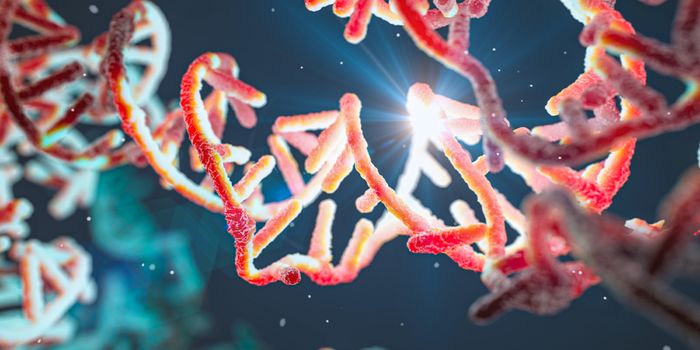The Effort to Sequence the Genomes of 1.5 Million Species
Last year, an international group of scientists described a proposed effort called the Earth BioGenome Project (EBP), which would sequence and characterize the genomes of every eukaryote on our planet. The researchers believe this work could have an array of impacts on major issues, including the conservation of species and our ecosystem. The project was outlined in a paper last year in the Proceedings of National Academy of Sciences and kicked off last November.
The video above features Harris Lewin, a distinguished professor of evolution and ecology at UC Davis and chair of the EBP Working Group describing the project.
“Genomics has helped scientists develop new medicines and new sources of renewable energy, feed a growing population, protect the environment and support human survival and well-being," Robinson said.
"The Earth BioGenome Project will give us insight into the history and diversity of life and help us better understand how to conserve it,” said Gene Robinson, a leader of the effort and a professor of entomology and the director of the Carl R. Woese Institute for Genomic Biology at the University of Illinois.
In the UK, the Wellcome Sanger Institute is contributing to the EBP with the Darwin Tree of Life Project by sequencing 66,000 eukaryotic species - every organism except for bacteria and archaea in the British Isles.
So far, scientists have only sequenced around 0.2 percent of the eukaryotes on Earth, roughly 3,500 genomes.
“The Earth BioGenome Project can be viewed as infrastructure for the new biology,” said Lewin. “Having the roadmap, the blueprints for all living species of eukaryotes, will be a tremendous resource for new discoveries, understanding the rules of life, how evolution works, new approaches for the conservation of rare and endangered species and provide new resources for researchers in the fields of agriculture and medicine.”
Many researchers will add to this project. At the Beijing Genomics Institute (BGI) in Shenzhen, China, scientists are gathering the genomic data of 10,000 plants. The Global Ant Genomes Alliance will sequence the genomes of 200 ants, while the USDA has initiated an effort to sequence 100 genomes of insects and mites that are relevant to agriculture.
Related: Sequencing the Genomes of 10,000 Plants
“Globally, more than half of the vertebrate population has been lost in the past 40 years, and 23,000 species face the threat of extinction in the near future,” said Professor Sir Mike Stratton, director of the Wellcome Sanger Institute. “Using the biological insights we will get from the genomes of all eukaryotic species, we can look to our responsibilities as custodians of life on this planet, tending life on Earth in a more informed manner using those genomes, at a time when nature is under considerable pressure, not least from us."









